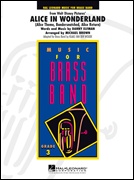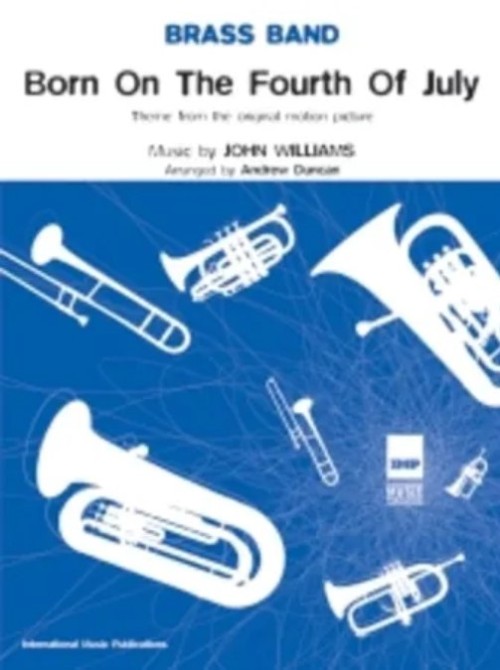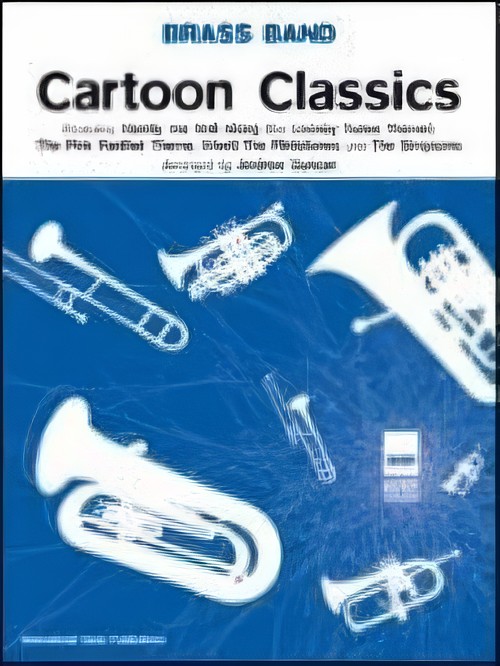Results
-
 £59.99
£59.99A Salzburg Impression (Brass Band - Score and Parts) - Mozart, Wolfgang Amadeus - Stratford, Dizzy
In this composition, Dizzy Stratford gives a musical impression of Wolfgang Amadeus Mozart's beautiful hometown. The theme of the work has been derived from the middle movement of one of Mozart's piano sonatas and provides the band with a glimpse into the creative genius of this great composer.Duration: 3:30
Estimated dispatch 7-14 working days
-
 £54.20
£54.20A TEAM (Brass Band) - Ratnik, Peter
Main Theme from the 1980's TV show. Grade: medium.
Estimated dispatch 7-14 working days
-
 £64.99
£64.99ALICE IN WONDERLAND (Brass Band) - Brown, Michael
4th Section. Lewis Carroll's novel Alice in Wonderland served as the basis for the new Walt Disney film. From Danny Elfman's soundtrack, Michael Brown used the titles Alice Returns, Alice's Theme and Bandersnatched for his enchanting medley that has been adapted for brass band by Klaas van der Woude.
Estimated dispatch 7-14 working days
-
£84.99
Alpine Variations (Brass Band - Score and Parts)
Grandiose is probably the word that best defines the character of the alpine regions. The magnificence of the mountains is fascinating. It makes anyone who has visited this region feel nostalgic and cherishing the hope of returning to see them again one day.Alpine Variations is a four-movement work written in the theme and variations form which reflects the majestic grandure of this breathtaking region in music. 08:00
Estimated dispatch 7-14 working days
-
 £50.90
£50.90AMADEUS (Brass Band) - Mozart, Wolfgang Amadeus - Fernie, Alan
Based on a Theme by Mozart. Grade: Easy
Estimated dispatch 7-14 working days
-
 £40.00
£40.00Born on the Fourth of July (Brass Band - Score and Parts) - Williams, John - Duncan, Andrew
The theme music from the original motion picture, Born on the Fourth of July, starring Tom Cruise. The music was composed by John Williams and this arrangement for brass band is by Andrew Duncan.Suitable for Youth/4th Section Bands and aboveDuration: 5.00
Estimated dispatch 7-14 working days
-
 £72.99
£72.99Brilliant Beatles (Brass Band - Score and Parts) - Schaars, Peter Kleine
There have been many arrangements of Beatles' songs for various kinds of ensembles, so rather than just producing a further medley of Beatles' hits, Peter Kleine Schaars has added a new twist to them with this excellent new work. All You Need Is Love and With a Little Help from my Friends pass by in a swing march, Michelle sounds like a newly composed ballad and When I'm Sixty Four is played in Dixie swing style. A Hard Day's Night is transformed into a funk theme with a samba interlude, Let It Be into a slow march, and Ob-La-Di, Ob-La-Da in a rock beat. Experience The Beatles as you have never heard them before.Duration: 7:00.
Estimated dispatch 7-14 working days
-
 £44.99
£44.99Cartoon Classics (Brass Band - Score and Parts) - Duncan, Andrew
In Cartoon Classics, Andrew Duncan has brought together four classic cartoon themes in one medley that will be a sure-fire hit with audiences everywhere. It features the Looney Tunes Theme (Merrily We Roll Along), The Pink Panther, The Flintstones and The Simpsons.Suitable for Advance Youth/3rd Section Bands and aboveDuration: 4.00
Estimated dispatch 7-14 working days
-
 £37.95
£37.95CHAMPIONS (Brass Band) - Davis, Carl - Sparke, Philip
Film Theme
Estimated dispatch 7-14 working days
-
 £69.99
£69.99CINEMANIA (Brass Band) - Finn, Robert
This music sounds as if it came straight off the cinema screen. However, there's no movie for this fantastic score! Just like EVERY good film score, this work also includes moving melodies, fast virtuoso passages and, last but not least, a romantic love theme. The instrumentation takes into account that a group may not be complete and this means that the piece can be played by practically every orchestra. Highly recommended for concerts and competitions.
Estimated dispatch 7-14 working days
